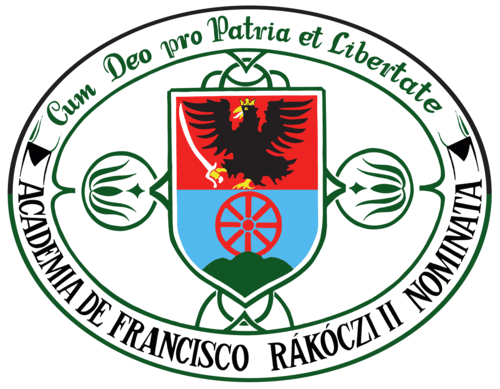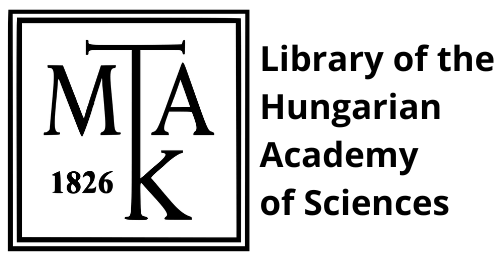Операціоналізація двомовного мовного досвіду та його зв'язок із виконавчою функцією
DOI:
https://doi.org/10.58423/2786-6726/2024-2-109-127Ключові слова:
мовний досвід, виконавча функція, білінгвізм, багатомовність, володіння мовою, засвоєння мови, тенденції використання мовиАнотація
Дослідження зв’язку між мовним досвідом і виконавчою функцією є важливою темою в галузі психолінгвістики вже більше двох десятиліть. Результати досліджень показали як підтверджувальні, так і заперечливі докази існування такого зв’язку. Остаточної відповіді про зв’язок між мовним досвідом і виконавчою функцією ще нема через перегляд усталених методологічних підходів і нових теорій, які у процесі розроблення, що ставить під сумнів достовірність попередніх результатів. Стаття є спробою узагальнити та пояснити сучасні тенденції в цьому напрямі досліджень, особливо зосереджуючись на питанні операціоналізації мовного досвіду. Білінгвізм і багатомовність є складними поняттями, що складаються з багатьох елементів, які можуть мати унікальний, незалежний вплив на мислення, включаючи рівень володіння мовою, спосіб і тривалість оволодівання мовою, поточні тенденції використання мови. У попередніх дослідженнях була тенденція зосереджуватися на одному елементі мовного досвіду для категоріального розрізнення між одномовними та двомовними людьми, зводячи велику варіативність останніх під одну категорію. Кожен елемент мовного досвіду має бути врахований і ретельно операціоналізований таким чином, щоб забезпечити прийнятне порівняння між різними дослідженнями на цю тему. Вивчення впливу різних елементів мовного досвіду на когнітивний контроль, взаємодії між цими елементами вимагають уваги, що здебільшого ігнорувалось. Наостанок, кожне дослідження має бути підкріплено надійною теоретичною основою, яка, як стверджувалося, є проблемою для дослідження зв’язку між мовним досвідом і виконавчою функцією, але має великий потенціал для вирішення невідповідностей у результатах дослідження. Не кожен досвід взаємодії з мовами потребує старанного когнітивного опрацювання та адаптацій, і навіть якщо деякий досвід дійсно того потребує, необхідна комплексна теорія для того, щоб пояснити, як когнітивні адаптації для використання мови можуть узагальнюватися в інших сферах мислення.
Посилання
Abrahamsson, N. – Hyltenstam, K. 2008. The robustness of aptitude effects in near-native second language acquisition. Studies in Second Language Acquisition 30/4: pp. 481–509. https://doi.org/10.1017/S027226310808073X
Antón, E. – Duñabeitia, J. A. – Estévez, A. – Hernández, J. A. – Castillo, A. – Fuentes, L. J. – Davidson, D. J. – Carreiras, M. 2014. Is there a bilingual advantage in the ANT task? Evidence from children. Frontiers in Psychology 5. https://doi.org/10.3389/fpsyg.2014.00398
Bakker, M. 2015. Power problems: N > 138. Cortex 73: pp. 367–368. https://doi.org/10.1016/j.cortex.2015.07.006
Barker, R. M. – Bialystok, E. 2019. Processing differences between monolingual and bilingual young adults on an emotion n-back task. Brain and Cognition 134: pp. 29–43. https://doi.org/10.1016/j.bandc.2019.05.004
Beatty-Martínez, A. L. – Navarro-Torres, C. A. – Dussias, P. E. – Bajo, M. T. – Guzzardo Tamargo, R. E. – Kroll, J. F. 2019. Interactional context mediates the consequences of bilingualism for language and cognition. Journal of Experimental Psychology: Learning, Memory, and Cognition. https://doi.org/10.1037/xlm0000770
Bialystok, E. 2001. Bilingualism in Development: Language, Literacy, and Cognition (1st ed.). Cambridge University Press. https://doi.org/10.1017/CBO9780511605963
Bialystok, E. 2009. Bilingualism: The good, the bad, and the indifferent. Bilingualism: Language and Cognition 12/1: pp. 3–11. https://doi.org/10.1017/S1366728908003477
Bialystok, E. 2016. The signal and the noise: Finding the pattern in human behaviour. Linguistic Approaches to Bilingualism 6/5: pp. 517–534. https://doi.org/10.1075/lab.15040.bia
Bialystok, E. – Craik, F. I. M. 2022. How does bilingualism modify cognitive function? Attention to the mechanism. Psychonomic Bulletin & Review 29/4: pp. 1246–1269. https://doi.org/10.3758/s13423-022-02057-5
Bialystok, E. – Craik, F. I. M. – Klein, R. – Viswanathan, M. 2004. Bilingualism, Aging, and Cognitive Control: Evidence from the Simon Task. Psychology and Aging 19/2: pp. 290–303. https://doi.org/10.1037/0882-7974.19.2.290
Bialystok, E. – Craik, F. – Luk, G. 2008. Cognitive control and lexical access in younger and older bilinguals. Journal of Experimental Psychology: Learning, Memory, and Cognition 34/4: pp. 859–873. https://doi.org/10.1037/0278-7393.34.4.859
Bogulski, C. A. – Rakoczy, M. – Goodman, M. – Bialystok, E. 2015. Executive control in fluent and lapsed bilinguals. Bilingualism: Language and Cognition 18/3: pp. 561–567. https://doi.org/10.1017/S1366728914000856
Carlson, S. M. – Meltzoff, A. N. 2008. Bilingual experience and executive functioning in young children. Developmental Science 11/2: pp. 282–298. https://doi.org/10.1111/j.1467-7687.2008.00675.x
Chung-Fat-Yim, A. – Sorge, G. B. – Bialystok, E. 2020. Continuous effects of bilingualism and attention on Flanker task performance. Bilingualism: Language and Cognition 23/5: pp. 1106–1111. https://doi.org/10.1017/S1366728920000036
Cockcroft, K. – Wigdorowitz, M. – Liversage, L. 2019. A multilingual advantage in the components of working memory. Bilingualism: Language and Cognition 22/1: pp. 15–29. https://doi.org/10.1017/S1366728917000475
Costa, A. – Hernández, M. – Costa-Faidella, J. – Sebastián-Gallés, N. 2009. On the bilingual advantage in conflict processing: Now you see it, now you don’t. Cognition 113/2: pp. 135–149. https://doi.org/10.1016/j.cognition.2009.08.001
De Cat, C. – Gusnanto, A. – Serratrice, L. 2018. Identifying a threshold for the executive function advantage in bilingual children. Studies in Second Language Acquisition 40/1: pp. 119–151. https://doi.org/10.1017/S0272263116000486
De Cat, C. – Kašćelan, D. – Prévost, P. – Serratrice, L. – Tuller, L. – Unsworth, S. – The Q-BEx Consortium 2023. How to quantify bilingual experience? Findings from a Delphi consensus survey. Bilingualism: Language and Cognition 26/1: pp. 112–124. https://doi.org/10.1017/S1366728922000359
DeLuca, V. – Rothman, J. – Bialystok, E. – Pliatsikas, C. 2019. Redefining bilingualism as a spectrum of experiences that differentially affects brain structure and function. Proceedings of the National Academy of Sciences, 116(15), 7565–7574. https://doi.org/10.1073/pnas.1811513116
DeLuca, V. – Rothman, J. – Bialystok, E. – Pliatsikas, C. 2020. Duration and extent of bilingual experience modulate neurocognitive outcomes. NeuroImage 204, 116222. https://doi.org/10.1016/j.neuroimage.2019.116222
Doroud, S. – Saeedi, Z. – Radman, N. 2020. Cognitive resilience in bilinguals and its potentiality in dealing with cognitive load [Preprint]. Neuroscience. https://doi.org/10.1101/2020.09.17.301606
Duñabeitia, J. A. – Hernández, J. A. – Antón, E. – Macizo, P. – Estévez, A. – Fuentes, L. J. – Carreiras, M. 2014. The Inhibitory Advantage in Bilingual Children Revisited: Myth or Reality? Experimental Psychology 61/3: pp. 234–251. https://doi.org/10.1027/1618-3169/a000243
Festman, J. – Rodriguez-Fornells, A. – Münte, T. F. 2010. Individual differences in control of language interference in late bilinguals are mainly related to general executive abilities. Behavioral and Brain Functions 6/1: pp. 5. https://doi.org/10.1186/1744-9081-6-5
Fink, A. – Goldrick, M. 2015. Pervasive benefits of preparation in language switching. Psychonomic Bulletin & Review 22/3: pp. 808–814. https://doi.org/10.3758/s13423-014-0739-6
Gathercole, V. C. M. – Thomas, E. M. – Kennedy, I. – Prys, C. – Young, N. – Viñas Guasch, N. – Roberts, E. J. – Hughes, E. K. – Jones, L. 2014. Does language dominance affect cognitive performance in bilinguals? Lifespan evidence from preschoolers through older adults on card sorting, Simon, and metalinguistic tasks. Frontiers in Psychology 5. https://doi.org/10.3389/fpsyg.2014.00011
Grainger, J. – Dijkstra, T. 1992. On the Representation and Use of Language Information in Bilinguals. Advances in Psychology 83: pp. 207–220. Elsevier. https://doi.org/10.1016/S0166-4115(08)61496-X
Granena, G. – Long, M. H. 2013. Age of onset, length of residence, language aptitude, and ultimate L2 attainment in three linguistic domains. Second Language Research 29/3: pp. 311–343. https://doi.org/10.1177/0267658312461497
Green, D. W. 1998. Mental control of the bilingual lexico-semantic system. Bilingualism: Language and Cognition 1/2: pp. 67–81. https://doi.org/10.1017/S1366728998000133
Green, D. W. – Abutalebi, J. 2013. Language control in bilinguals: The adaptive control hypothesis. Journal of Cognitive Psychology 25/5: pp. 515–530. https://doi.org/10.1080/20445911.2013.796377
Grosjean, F. – Li, P. 2013. The psycholinguistics of bilingualism. Wiley-Blackwell.
Gullifer, J. W. – Chai, X. J. – Whitford, V. – Pivneva, I. – Baum, S. – Klein, D. – Titone, D. 2018. Bilingual experience and resting-state brain connectivity: Impacts of L2 age of acquisition and social diversity of language use on control networks. Neuropsychologia 117: pp. 123–134. https://doi.org/10.1016/j.neuropsychologia.2018.04.037
Gullifer, J. W. – Titone, D. 2020. Characterizing the social diversity of bilingualism using language entropy. Bilingualism: Language and Cognition 23/2: pp. 283–294. https://doi.org/10.1017/S1366728919000026
Hartanto, A. – Yang, H. 2016. Disparate bilingual experiences modulate task-switching advantages: A diffusion-model analysis of the effects of interactional context on switch costs. Cognition 150: pp. 10–19. https://doi.org/10.1016/j.cognition.2016.01.016
Hartanto, A. – Yang, H. 2020. The role of bilingual interactional contexts in predicting interindividual variability in executive functions: A latent variable analysis. Journal of Experimental Psychology: General 149/4: pp. 609–633. https://doi.org/10.1037/xge0000672
Hartsuiker, R. J. 2015. Why it is pointless to ask under which specific circumstances the bilingual advantage occurs. Cortex 73: pp. 336–337. https://doi.org/10.1016/j.cortex.2015.07.018
Janus, M. – Bialystok, E. 2018. Working Memory with Emotional Distraction in Monolingual and Bilingual Children. Frontiers in Psychology 9, 1582. https://doi.org/10.3389/fpsyg.2018.01582
Jiao, L. – Liu, C. – Wang, R. – Chen, B. 2019. Working memory demand of a task modulates bilingual advantage in executive functions. International Journal of Bilingualism 23/1: pp. 102–117. https://doi.org/10.1177/1367006917709097
Kałamała, P. – Szewczyk, J. – Chuderski, A. – Senderecka, M. – Wodniecka, Z. 2020. Patterns of bilingual language use and response inhibition: A test of the adaptive control hypothesis. Cognition 204, 104373. https://doi.org/10.1016/j.cognition.2020.104373
Kheder, S. – Kaan, E. 2021. Cognitive control in bilinguals: Proficiency and code-switching both matter. Cognition 209, 104575. https://doi.org/10.1016/j.cognition.2020.104575
Khodos, I. – Moskovsky, C. – Paolini, S. 2021. Bilinguals’ and monolinguals’ performance on a non-verbal cognitive control task: How bilingual language experience contributes to cognitive performance by reducing mixing and switching costs. International Journal of Bilingualism 25/1: pp. 189–204. https://doi.org/10.1177/1367006920946401
Kramer, R. – Mota, M. B. 2015. Effects of bilingualism on inhibitory control and working memory: a study with early and late bilinguals. Gragoatá 20/38. https://doi.org/10.22409/gragoata.v20i38.33312
Kroll, J. F. – Bobb, S. C. – Wodniecka, Z. 2006. Language selectivity is the exception, not the rule: Arguments against a fixed locus of language selection in bilingual speech. Bilingualism: Language and Cognition 9/2: pp. 119–135. https://doi.org/10.1017/S1366728906002483
Lai, G. – O’Brien, B. A. 2020. Examining Language Switching and Cognitive Control Through the Adaptive Control Hypothesis. Frontiers in Psychology 11, 1171. https://doi.org/10.3389/fpsyg.2020.01171
Li, P. – Sepanski, S. – Zhao, X. 2006. Language history questionnaire: A Web-based interface for bilingual research. Behavior Research Methods 38/2: pp. 202–210. https://doi.org/10.3758/BF03192770
Li, P. – Zhang, F. – Yu, A. – Zhao, X. 2020. Language History Questionnaire (LHQ3): An enhanced tool for assessing multilingual experience. Bilingualism: Language and Cognition 23/5: pp. 938–944. https://doi.org/10.1017/S1366728918001153
Luk, G. – Bialystok, E. 2013. Bilingualism is not a categorical variable: Interaction between language proficiency and usage. Journal of Cognitive Psychology 25/5: pp. 605–621. https://doi.org/10.1080/20445911.2013.795574
Luk, G. – Bialystok, E. – Craik, F. I. M. – Grady, C. L. 2011. Lifelong Bilingualism Maintains White Matter Integrity in Older Adults. Journal of Neuroscience 31/46: pp. 16808–16813. https://doi.org/10.1523/JNEUROSCI.4563-11.2011
Marian, V. – Blumenfeld, H. K. – Kaushanskaya, M. 2007. The Language Experience and Proficiency Questionnaire (LEAP-Q): Assessing Language Profiles in Bilinguals and Multilinguals. Journal of Speech, Language, and Hearing Research 50/4: pp. 940–967. https://doi.org/10.1044/1092-4388(2007/067)
Miyake, A. – Friedman, N. P. 2012. The Nature and Organization of Individual Differences in Executive Functions: Four General Conclusions. Current Directions in Psychological Science 21/1: pp. 8–14. https://doi.org/10.1177/0963721411429458
Mosca, M. – de Bot, K. 2017. Bilingual Language Switching: Production vs. Recognition. Frontiers in Psychology 8, 934. https://doi.org/10.3389/fpsyg.2017.00934
Muñoz, C. ed. 2006. Age and the Rate of Foreign Language Learning. Multilingual Matters. https://doi.org/10.21832/9781853598937
Paap, K. 2019. The Bilingual Advantage Debate: Quantity and Quality of the Evidence. In: J. W. Schwieter – M. Paradis eds. The Handbook of the Neuroscience of Multilingualism (First Edition). Wiley. pp. 701–735. https://doi.org/10.1002/9781119387725.ch34
Paap, K. – Greenberg, Z. I. 2013. There is no coherent evidence for a bilingual advantage in executive processing. Cognitive Psychology 66/2: pp. 232–258. https://doi.org/10.1016/j.cogpsych.2012.12.002
Paap, K. – Johnson, H. – Sawi, O. 2015. Bilingual advantages in executive functioning either do not exist or are restricted to very specific and undetermined circumstances. Cortex 69: 265–278. https://doi.org/10.1016/j.cortex.2015.04.014
Paap, K. – M. Sawi, O. – Dalibar, C. – Darrow, J. – A. Johnson, H. – Language, Attention, Cognitive Engineering (LACE) Lab, Department of Psychology, San Francisco State University, San Francisco, CA, USA 2014. The Brain Mechanisms Underlying the Cognitive Benefits of Bilingualism may be Extraordinarily Difficult to Discover. AIMS Neuroscience 1/3: pp. 245–256. https://doi.org/10.3934/Neuroscience.2014.3.245
Paap, K. R. – Mason, L. – Anders-Jefferson, R. 2021. Predictions about the Cognitive Consequences of Language Switching on Executive Functioning Inspired by the Adaptive Control Hypothesis Fail More Often than Not. Brain Sciences 11/9, 1217. https://doi.org/10.3390/brainsci11091217
Paap, K. R. – Sawi, O. M. 2014. Bilingual advantages in executive functioning: Problems in convergent validity, discriminant validity, and the identification of the theoretical constructs. Frontiers in Psychology 5. https://doi.org/10.3389/fpsyg.2014.00962
Piske, T. – Flege, J. E. – MacKay, I. R. A. – Meador, D. 2002. The Production of English Vowels by Fluent Early and Late Italian-English Bilinguals. Phonetica 59/1: pp. 49–71. https://doi.org/10.1159/000056205
Pot, A. – Keijzer, M. – de Bot, K. 2018. Intensity of Multilingual Language Use Predicts Cognitive Performance in Some Multilingual Older Adults. Brain Sciences 8/5, 92. https://doi.org/10.3390/brainsci8050092
Prior, A. – Gollan, T. H. 2011. Good Language-Switchers are Good Task-Switchers: Evidence from Spanish–English and Mandarin–English Bilinguals. Journal of the International Neuropsychological Society 17/4: pp. 682–691. https://doi.org/10.1017/S1355617711000580
Revniuk, V. – Bátyi, S. 2023. The relationship between bilingual language control and language dominance: An empirical study of visual language perception. East European Journal of Psycholinguistics 10/2. https://doi.org/10.29038/eejpl.2023.10.2.rev
Reynolds, M. G. – Schlöffel, S. – Peressotti, F. 2016. Asymmetric Switch Costs in Numeral Naming and Number Word Reading: Implications for Models of Bilingual Language Production. Frontiers in Psychology 6. https://doi.org/10.3389/fpsyg.2015.02011
Sanchez-Azanza, V. A. – López-Penadés, R. – Adrover-Roig, D. 2020. More similitudes than differences between bilinguals and monolinguals on speeded and demand-varying executive tasks. Language, Cognition and Neuroscience 35/8: pp. 992–1009. https://doi.org/10.1080/23273798.2019.1706752
Soveri, A. – Rodriguez-Fornells, A. – Laine, M. 2011. Is There a Relationship between Language Switching and Executive Functions in Bilingualism? Introducing a within group Analysis Approach. Frontiers in Psychology 2. https://doi.org/10.3389/fpsyg.2011.00183
Surrain, S. – Luk, G. 2019. Describing bilinguals: A systematic review of labels and descriptions used in the literature between 2005–2015. Bilingualism: Language and Cognition 22/2: pp. 401–415. https://doi.org/10.1017/S1366728917000682
Thanissery, N. – Parihar, P. – Kar, B. R. 2020. Language proficiency, sociolinguistic factors and inhibitory control among bilinguals. Journal of Cultural Cognitive Science 4/2: pp. 217–241. https://doi.org/10.1007/s41809-020-00065-2
Treccani, B. – Mulatti, C. 2015. No matter who, no matter how… and no matter whether the white matter matters. Why theories of bilingual advantage in executive functioning are so difficult to falsify. Cortex 73: 349–351. https://doi.org/10.1016/j.cortex.2015.07.015
Von Bastian, C. C. – Souza, A. S. – Gade, M. 2016. No evidence for bilingual cognitive advantages: A test of four hypotheses. Journal of Experimental Psychology: General 145/2: pp. 246–258. https://doi.org/10.1037/xge0000120
Xie, Z. – Dong, Y. 2017. Contributions of bilingualism and public speaking training to cognitive control differences among young adults. Bilingualism: Language and Cognition 20/1: pp. 55–68. https://doi.org/10.1017/S1366728915000474
Yang, H. – Hartanto, A. – Yang, S. 2016. The importance of bilingual experience in assessing bilingual advantages in executive functions. Cortex 75, pp. 237–240. https://doi.org/10.1016/j.cortex.2015.11.018
Yang, H. – Yang, S. 2017. Are all interferences bad? Bilingual advantages in working memory are modulated by varying demands for controlled processing. Bilingualism: Language and Cognition 20/1: pp. 184–196. https://doi.org/10.1017/S1366728915000632
Yim, O. – Bialystok, E. 2012. Degree of conversational code-switching enhances verbal task switching in Cantonese–English bilinguals. Bilingualism: Language and Cognition 15/4: pp. 873–883. https://doi.org/10.1017/S1366728912000478
Downloads
Опубліковано
Як цитувати
Номер
Розділ
Ліцензія
Автори зберігають авторські права та надають журналу право першої публікації. Водночас робота ліцензується за умовами ліцензії Creative Commons Attribution 4.0 International License (CC BY 4.0), що дозволяє іншим поширювати матеріал за умови належного посилання на автор(ів) та первинну публікацію в цьому журналі.

















